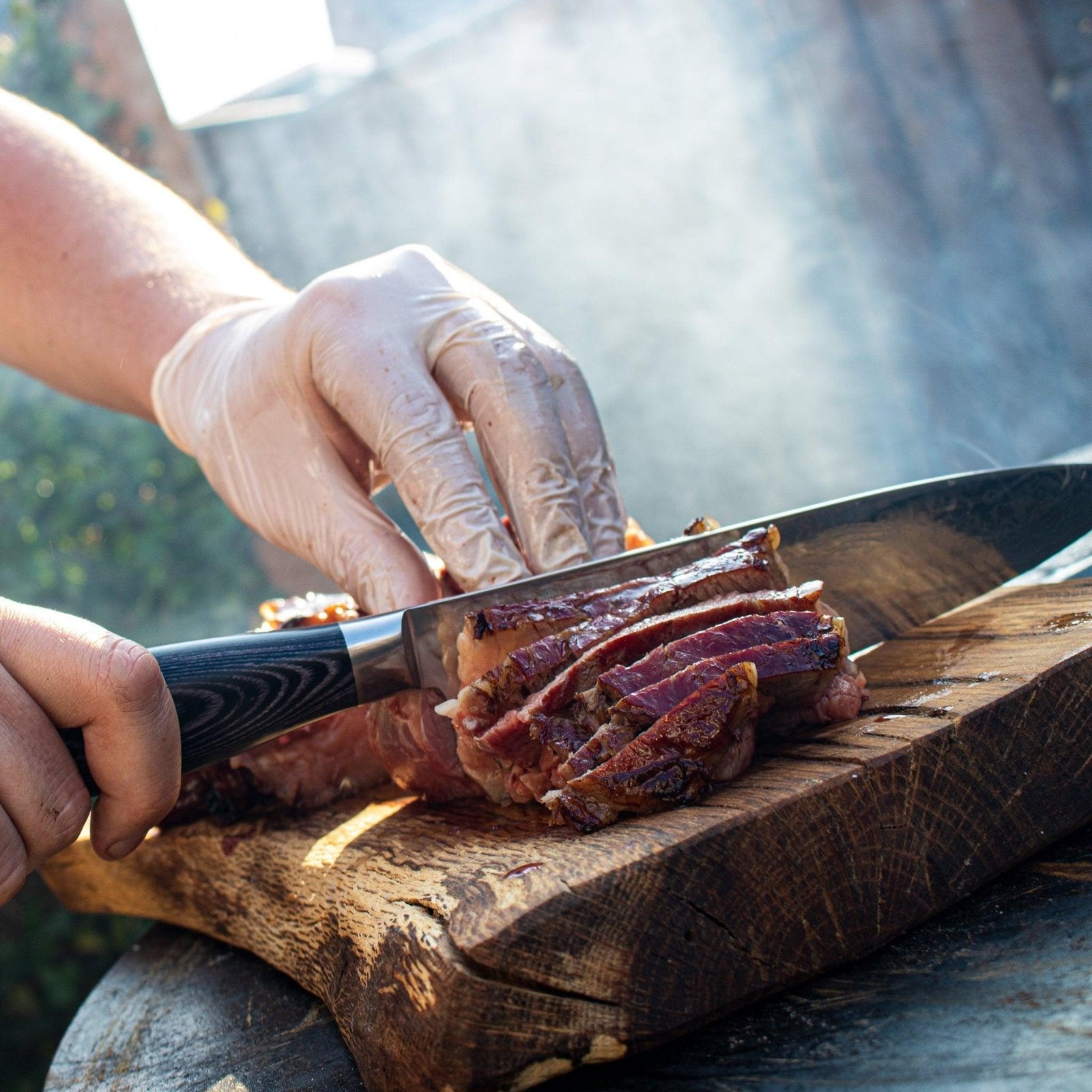Your Cart is Empty
FREE SHIPPING FOR USA

Damascus knives are prized for their intricate patterns, remarkable cutting performance, and artisanal craftsmanship. But with their beauty comes responsibility—especially when it comes to storage. In humid environments, improper storage can lead to rust, pitting, discoloration, or even blade degradation. This article provides a complete guide to storing Damascus steel knives in high-humidity regions, helping collectors, chefs, and outdoorsmen protect their investment.
Whether you live in coastal regions, tropical climates, or just want to preserve your knife in peak condition, this guide covers every aspect—from the science of humidity and corrosion to real-world storage solutions.
Humidity refers to the amount of moisture in the air. When relative humidity rises above 50%, especially in warm environments, it creates ideal conditions for oxidation. Damascus steel, typically made from high-carbon steel layers, is especially vulnerable to rust due to its carbon content—even with modern stainless variants.
Carbon steel lacks the chromium found in stainless steel that provides natural rust resistance.
Microscopic imperfections in the layered pattern can trap moisture.
Salt and minerals in humid air (e.g., coastal regions) accelerate corrosion.
When moisture interacts with oxygen and iron, oxidation occurs.
This leads to rust forming as red or brown flaky residue.
Over time, this can weaken the blade’s structure and ruin the etching or pattern.
To extend the life of your Damascus steel knife, you must reduce the knife's exposure to moisture and humidity.
Relative Humidity: Keep below 50% if possible.
Temperature: Stable room temperature (60–75°F or 15–24°C).
Airflow: Good ventilation discourages moisture accumulation.
Leather sheaths for long-term storage (they absorb moisture).
Airtight containers without desiccants.
Storing in basements, garages, or attics without climate control.
Let’s go over practical options that blend protection with ease of access.
Invest in a dehumidified display cabinet or dry box.
Ideal for collectors displaying their Damascus blades.
Add a humidity sensor (hygrometer) for monitoring.
Place silica gel packs in knife drawers, boxes, or cases.
Change them regularly or use color-changing desiccants for status checking.
Wrap the blade in VCI paper or insert it into inhibitor-treated sleeves.
Common in the gun and tool industries, very effective for long-term protection.
Apply a thin film of protective oil (e.g., mineral oil, camellia oil, or Tuf-Glide).
Avoid cooking oils—they become rancid over time.
Ballistol (multipurpose oil)
Tsubaki (camellia) oil for Japanese blades
Ren Wax (Renaissance Wax) for showpieces
If you’re taking your Damascus knife on the go—whether for hunting, camping, or culinary work—extra precautions are needed.
Store in a breathable pouch, preferably nylon or waxed canvas.
Wipe the blade dry before re-sheathing it.
Reapply oil after heavy use or exposure to wet conditions.
Do not store the knife in leather sheaths when not actively using it.
Avoid these at all costs:
Leaving the knife in a damp sink or dishwasher.
Wrapping blades in plastic wrap without ventilation.
Long-term storage in leather sheaths.
Forgetting to dry the blade before putting it away.
A good care regimen can preserve a Damascus knife for decades.
Inspect for rust or corrosion under good lighting.
Wipe the blade clean with isopropyl alcohol.
Apply a thin layer of protective oil.
Check your desiccants and replace if saturated.
Rotate knives in storage to avoid contact wear.
Re-polish the blade if necessary.
Refresh handle treatment (wooden handles may need linseed or tung oil).
Update storage setup if humidity levels change seasonally.
Use a hygrometer to measure humidity levels. Anything over 50–55% may begin to affect carbon steel. Aim to store in controlled environments or use silica gel.
No. Leather traps and retains moisture, especially in humid air. Always remove the knife from leather sheaths before long-term storage.
In humid areas, oil the blade at least once a month, or more often if the knife is used frequently or exposed to moisture.
Camellia oil, mineral oil, and Tuf-Glide are all great options. Avoid vegetable or cooking oils—they become sticky or rancid over time.
Yes, even stainless-layered Damascus can rust if exposed to enough humidity or salt. While more resistant, they still need care.
Proper storage is essential if you live in a humid climate and want to preserve the beauty, function, and value of your Damascus knife. From selecting breathable materials to using desiccants and applying blade oil, each step you take can significantly extend the life of your knife. Treat your blade like the investment it is—and it will serve you for generations.
For more care tips, see our guide on How to Clean and Maintain Damascus Knives.